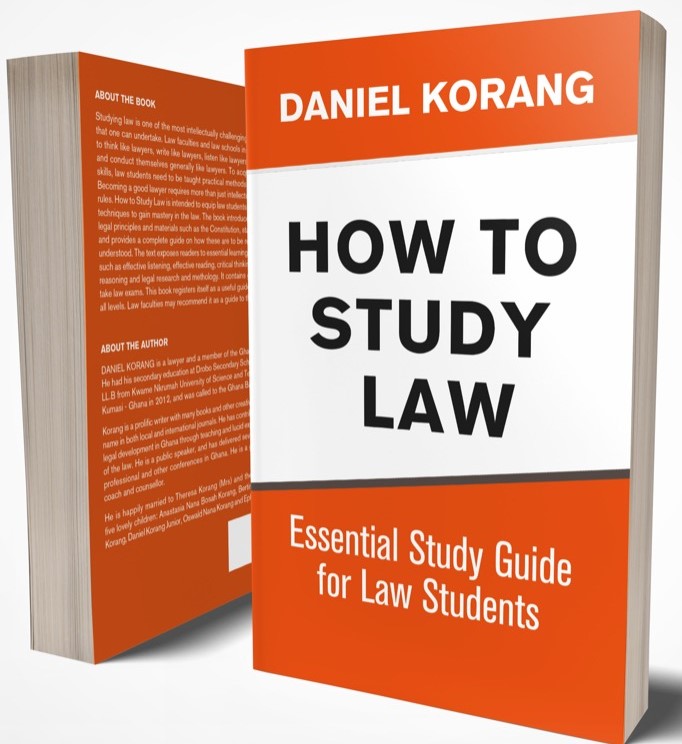Teaching law students How To Study Law, new book by Daniel Korang argues strategies
He equals his soon-to-be-launched book, ‘How to Study Law’ as the Ghanaian version of Glanville Williams’ Learning the Law.

There is always something noticeable about the practitioners of the legal profession. If it’s not their black and white dress codes, then when you sit in a courtroom you will not miss noticing mannerisms and how arguments ensue. This always seems a marvel to ‘outsiders.’
But where this all begins is usually from the law schools. Daniel Korang says many law faculties teach their students to listen like lawyers, talk like lawyers, think like lawyers, to write like lawyers. “These are all skills that we must impact in our students,” he adds.
He equals his soon-to-be-launched book, ‘How to Study Law’ as the Ghanaian version of Glanville Williams’ Learning the Law. First published in 1945, Glanville Williams’ book according to publishers/reviewers has been introducing students to the 'foundation' skills needed to study law effectively.
In ‘How to Study Law’ the author follows a similar line – that it provides guidelines and techniques to equip students with basic skills and strategies to gain mastery in law from a domestic approach.
The 30-chapter book “introduces students to basic legal principles and materials such as the Constitution, statutes and case law, provides a complete guide on how these are to be read, interpreted and understood.”
Commenting, Korang says: “I discuss very important topics like the nature of law, the law as an academic discipline, then I treat legal systems that we have in the world. I treat legal language. As lawyers, we have our specialized language and when you are reading law you get exposed to some of the legal diction and you get confused, so I guide students on how they can understand the legal language of the books.
You may have heard of Affidavit before, writ of summons, election petition - what so these things mean? I explain the basic documents that you file in court and their meaning. I look at Judges, Magistrates and how they are addressed. You hear people saying My Lord, Your Lordship, Your Ladyship, how do we address judges when we go to court? These are all explained.”
Copies of the book are expected to be out by the close of August 2022.


